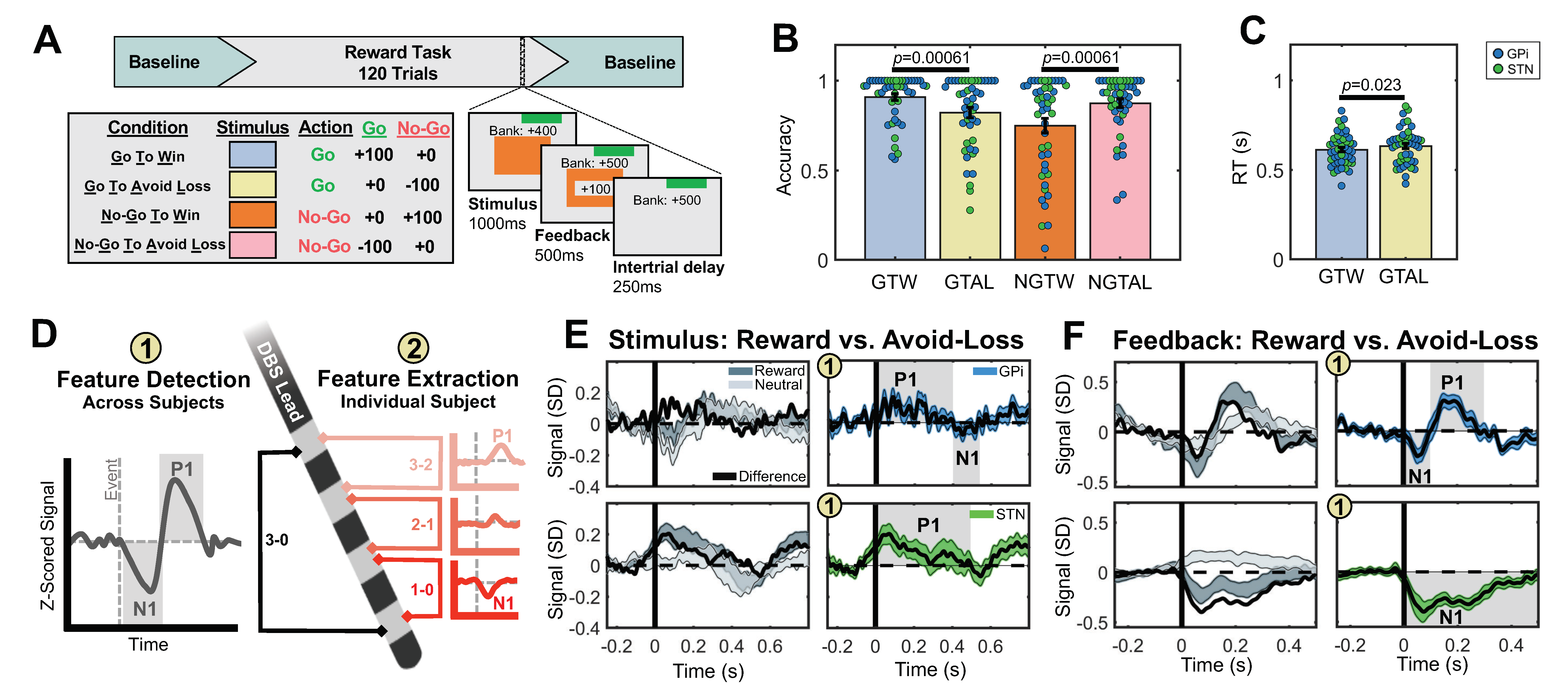By Eli Golde
For patients with Parkinson’s disease who are treated with deep brain stimulation (DBS), increased impulsivity can be a significant side effect. New research by UF neuroscientists shows that brain activity associated with reward processing takes place in two parts of the basal ganglia that are stimulated during DBS surgery — the subthalamic nucleus (STN) and globus pallidus internus (GPi) — and identified distinct roles in each. The findings were published in the journal Biological Psychiatry.
The researchers observed 39 patients with Parkinson’s disease during DBS surgery and recorded their brain activity from electrodes implanted in either the STN or GPi, depending on the area targeted, while they engaged in a reward game. Brain signals were then analyzed to isolate signals specific to reward function and were correlated to impulsivity severity.
“This study puts us one step closer to understanding and preventing unwanted side effects of deep brain stimulation surgery,” said Robert S. Eisinger, Ph.D., an M.D.-Ph.D. student in the department of neuroscience and first author of the paper. “The next step will be to repeat the study during active brain stimulation.”
Aysegul Gunduz, Ph.D., an associate professor in the J. Crayton Pruitt Family Department of Biomedical Engineering and principal investigator of the UF Brain Mapping Laboratory was the study’s senior author.


